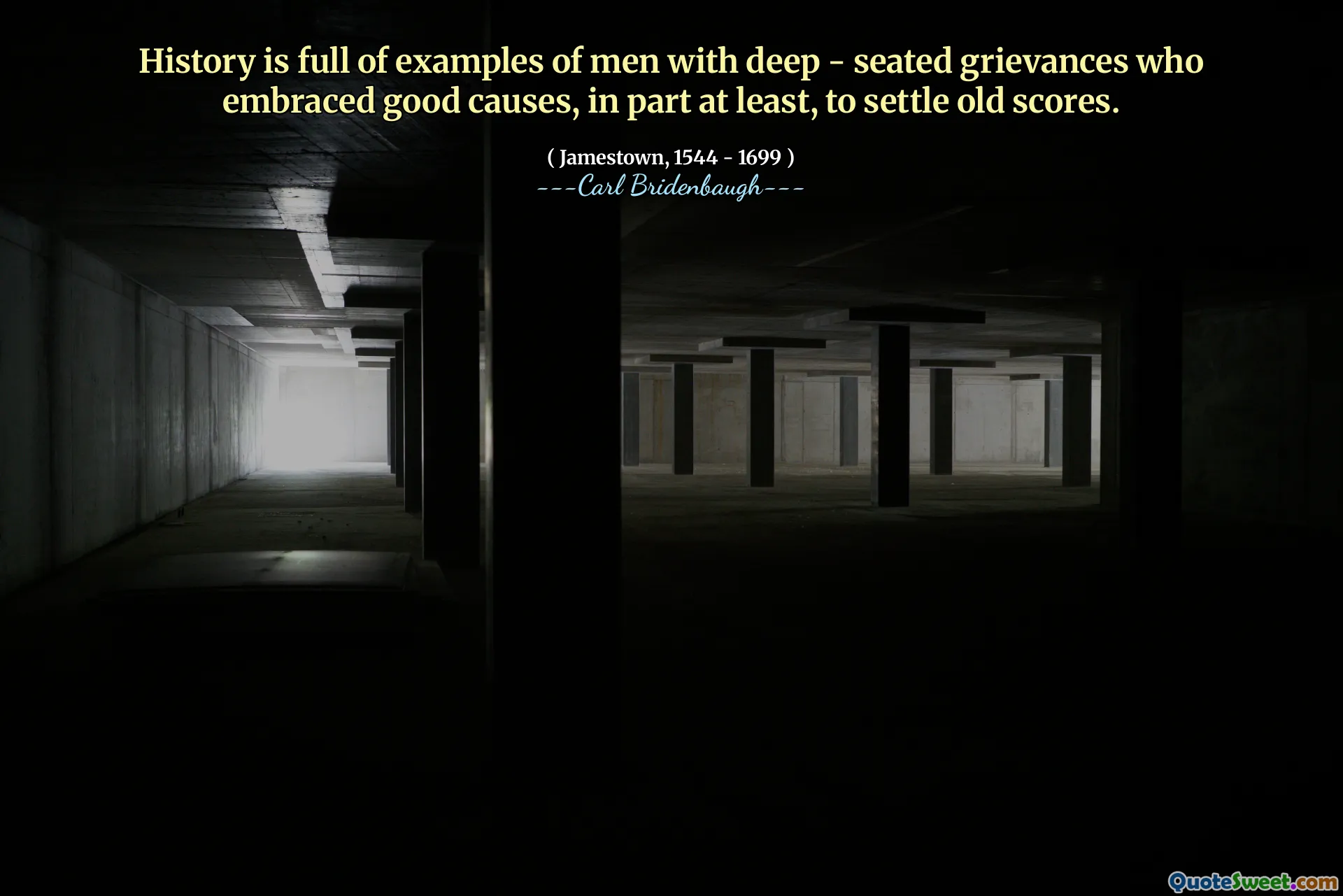
History is full of examples of men with deep - seated grievances who embraced good causes, in part at least, to settle old scores.
Throughout history, many individuals and groups have been driven by more than just lofty ideals or genuine concern for the greater good. Their actions are often influenced—or even motivated—by personal vendettas, long-held grievances, and unresolved conflicts. This tendency reveals that motives are frequently complex and intertwined; what appears on the surface as righteous or noble can sometimes serve as a vehicle for personal revenge or the settling of old scores. Recognizing this pattern is crucial for understanding historical events and the motivations behind them. It reminds us to approach historical narratives with a critical eye, asking not only what was achieved but also at what cost and for what underlying reasons.
Many conflicts labeled as noble crusades or reforms in history are, in reality, rooted in personal or collective grudges. These grievances can be inherited, exploited, or used as justification by leaders to galvanize support, distract from internal issues, or strengthen their power base. This complex interplay of motives influences political decisions, wars, revolutions, and social movements, often masking underlying motives of revenge, entitlement, or revenge disguised as justice.
Understanding that grievances can be a catalyst for noble causes—yet also serve as a cover for darker intentions—encourages us to evaluate historical actions with nuance. It fosters a more comprehensive perspective that considers both the moral ideals presented and the underlying psychological and political incentives. This awareness can serve as a reminder to scrutinize current causes and movements, questioning whether they are genuinely driven by virtuous aims or if personal and historical grievances subtly influence their direction. The quote underscores the importance of vigilance and critical analysis in interpreting both history and contemporary efforts for social change.






